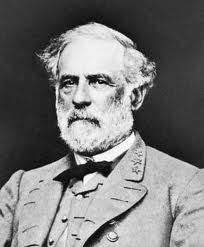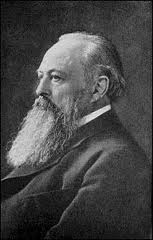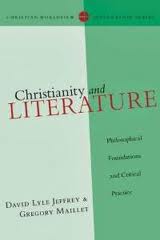
G.K. Chesterton on the Southern Gentleman

Chesterton never ceases to surprise or delight. Given that yesterday was the birthdate of Robert E. Lee, it might be appropriate to share a good quote by Chesterton himself, commenting on the southern gentleman:
For the aristocrat of Old Dixie, with all his faults and inconsistencies, did understand what the gentleman of Old Europe generally did not. He did understand the Republican ideal, the notion of the Citizen as it was understood among the noblest of pagans. That combintion of ideal democracy with real chivalry was a particular blend for which the world was immeasurably the better; and for the loss of which it is immeasurably the worse. It may never be recovered; but it will certainly be missed.
In G.K. Chesterton (and Lawrence J. Clipper, editor), Collected Works of G.K. Chesterton, vol. xxxv, The Illustrated London News, 1929-1992), 218. Quote found in H.W. Crocker, III, The Politically Incorrect Guide to the Civil War (Regnery, 2008), 12.
- Details
- Category: Recommended Reading Recommended Reading
- Published: 20 January 2012 20 January 2012
- Hits: 5472 5472
Happy Birthday Robert E. Lee

Today is the birthdate of Robert E. Lee. He was born on January 19, 1807 (and died October 12, 1870). When the Union under Lincoln was preparing to invade the South, Lincoln asked Lee to come serve as a leader in the Union's military effort. Lee, to his credit, declined, choosing to serve in Virginia and to defend his people from invasion. I am no Lee scholar, but one good book which can serve as a good introduction is H. W. Crocker, III, Robert E. Lee on Leadership: Executive Lessons in Character, Courage, and Vision.
When Lee surrendered at Appomattox (April 9, 1865), he gave a farewell address (on the next day, April 10, 1865), which is the South's own "Gettysburg Address" (so Crocker):
After four years of arduous service, marked by unurpassed courage adn fortitude, the Army of Northern Virginia has been compelled to yield to overwhelming numbers and resources.
I need not tell the brave survivors of so many hard-fought battles, who have remained steadfast to the last, that I have consented to the result from no distrust of them.
But, feeling that valor and devotion could accomplish nothing that could compensate for the loss that must have attended the continuance of the contest, I determined to avoid the useless sacrifice of those whose past services have endeared them to their countrymen.
By the terms of the agreement officers adn men can return to their homes and remain until exchanged. You will take with you the satisfaction that proceeds from the conciousness of duty faithfully performed; and I earnestly pray that a merciful God will extend to you his blessing and protection.
With an increasing admiration of your constancy and devotion to your country, and a grateful remembrance of your kind and generous considerations for myself, I bid you all an affectionate farewell.
- Details
- Category: Recommended Reading Recommended Reading
- Published: 19 January 2012 19 January 2012
- Hits: 3966 3966
Lord Acton's Correspondence with Robert E. Lee

It is intriguing that Lord Acton took it upon himself to correspond with General Robert E. Lee about the South's efforts to resist the Union army. Lord Acton is known in most circles as a thoughtful defender of liberty and of what is often called "classical liberalism"--in short, the notions of limited government and the centrality of economic and personal liberty. Acton was a Catholic thinker and historian from England. Acton saw in Lee's (and the South's) resistance to the Union army a proper battle for constitutional liberty. In a letter dated November 4, 1866 (after the end of the war, of course) to Lee, Acton writes the following:
I saw in State Rights the only availing check upon the absolutism of the sovereign will, and secession filled me with hope, not as the destruction but as the redemption of Democracy. The institutions of your Republic have not exercised on the old world the salutary and liberating influence which ought to have belonged to them, by reason of those defects and abuses of principle which the Confederate Constitution was expressly and wisely calculated to remedy. I believed that the example of that great Reform would have blessed all the races of mankind by establishing true freedom purged of the native dangers and disorders of Republics. Therefore I deemed that you were fighting the battles of our liberty, our progress, and our civilization; and I mourn for the stake which was lost at Richmond more deeply than I rejoice over that which was saved at Waterloo.
For the rest of the letter, click here. It is these kinds of documents that often lead people to re-think the "received" version of history that we often have heard over the years. Lord's Acton's are wise words for our day.
- Details
- Category: Recommended Reading Recommended Reading
- Published: 18 January 2012 18 January 2012
- Hits: 6783 6783
David Lyle Jeffrey on Christianity and Literature

I am always thankful when David Lyle Jeffrey publishes another book. His latest is Christianity and Literature: Philosophical Foundations and Critical Practice, co-written with Gregory Maillett. The book has published in IVP's "Christian Worldview Integration Series," edited by J.P. Moreland and Francis J. Beckwith. I was helped immensely as a doctoral student when I stumbled upon Jeffrey's People of the Book: Christian Identity and Literary Culture. If you are wrestling with the question of the nature of language and the nature of literature, I can hardly think of a better guide than Jeffrey.
- Details
- Category: Recommended Reading Recommended Reading
- Published: 04 December 2011 04 December 2011
- Hits: 3673 3673